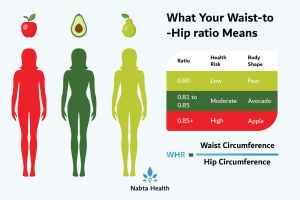4 Food Remedies for Constipation in Toddlers

Everyone gets constipated at some point, even toddlers. When parents are juggling toilet training and picky or erratic eating, panic over a toddler not producing poo can set in. Don’t worry too much, though. A change in your toddler’s diet may be all you need.
When it comes to how often your toddler should poo, the ideal production schedule is one bowel movement a day. Some toddlers, however, don’t go every day, while others go more than once a day. If your toddler goes poo less than three times per week (or less than his or her “usual” routine), and the stool is hard or difficult to pass, you may have a constipated toddler.
According to the American Academy of Pediatrics, a child whose stool is hard, large, dry, and painful to pass, or who has stool leakage (staining in undergarments) between bowel movements, or apparent blood outside of the stool may be constipated.
Occasional constipation is normal — we all get backed up occasionally. But constipation that lasts longer than two weeks is called chronic constipation and can lead to more problems later.
While you will want to find out the basis for your child’s constipation, such as holding stool, fear of the toilet, improper diet, or dehydration, almost all children will benefit from changes in their diets to help move things along.
Follow these diet adjustments, and keep track of how often your toddler moves his or her bowels. If you don’t see improvement in a few weeks, head to the pediatrician.
1. Eat more fiber-containing food. Fiber helps to soften stool and promotes bowel movements. Foods such as fruit, vegetables, whole grains, high fiber cereals, beans, and fruit juices can assist with constipation. Particularly, prune juice or mango and pear nectars contain sorbitol, which acts as a natural laxative. Try to offer a good fiber source at each meal and snack if your toddler is constipated.
2. Drink more water. Not enough fluid in the diet can lead to hard stools, making them hard to pass and uncomfortable, which may lead to fear of going poo and withholding bowel movements. When increasing the amount of fiber in your toddler’s diet, you’ll want to increase fluids also, since more fiber without adequate fluid can lead to constipation. Offer plenty of water between meals and snacks, and make sure other fluids are offered during food time, such as milk or 100 percent fruit juice.
3. Eat or drink less milk, cheese, and other dairy products. Some toddlers are hooked on milk, which can be constipating. Others may eat a lot of dairy foods, which may have the same effect. While you want your toddler to get his or her daily dairy allowance (for calcium, vitamin D and other nutrients), you don’t want to go overboard, especially if it triggers constipation. Keep milk and dairy foods (or non-dairy substitutes) to three servings per day.
4. Eat less processed foods and sweets. Not only do you want to scale back on these foods for your toddler’s overall health, but these foods won’t help and may even make things worse if your child is constipated. Processed foods are often low in fiber and do little to promote normal bowel health and bowel movements. So, get away from the bags and boxes of prepared and processed foods, and go for natural foods like fruit and veggies, or make your own snacks, such as mini muffins, substituting whole grain flour or adding oats to increase the overall fiber content.
Sources:
- American Academy of Pediatrics
- How do I know if my child is constipated?
American Academy of Pediatrics. Constipation.
Castle and Jacobsen. Fearless Feeding: How to Raise Healthy Eaters from High Chair to High School.
Powered by Bundoo®










